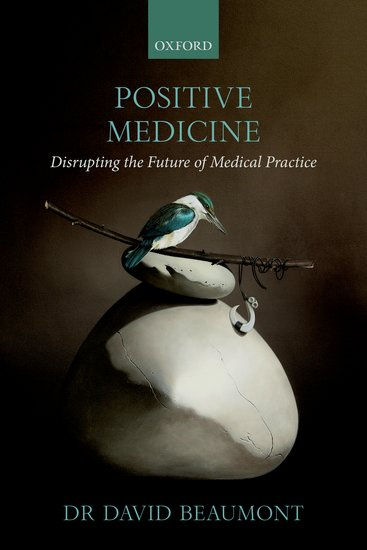Positive Medicine by Dr David Beaumont
- NZ Booklovers

- Oct 7, 2021
- 3 min read

Positive Medicine by Dr David Beaumont is an inspirational and thought-provoking book. If his vision for a radical transformation of our health care system was realized it would be a big step forward and enhance the health and sense of wellbeing of New Zealanders.
The time for this is ripe because the medical model that doctors practice to, has remained largely unchanged for 150 years and is no longer fit for purpose. He writes:
'Our healthcare systems are based on a deficit model. They aim to identify lack of health. And try to restore a degree of health. But they are failing even to do that and losing the battle against many chronic diseases.'
GP’s have a crucial role to play in this transformation. Traditionally patients have gone to their doctor wanting to be cured. In this new model doctors would adopt a more holistic approach, one in which the doctor-patient relationship would be replaced be a doctor-partner relationship. Together they would map out a plan for a pathway to better health. Then patients would find themselves in the driving seat and take responsibility for managing their illness and disease and enhancing their own health.
This empowerment model would work for patients of every age. And it is evidence based, research shows that by developing an internal focus of control, we can increase our chances of living longer with less illness and disease.
His model for better healthcare was inspired by Māori health expert Sir Mason Durie who, in 1984, developed Te Whare Tapa Whā, a Māori model of health and wellbeing. Based on the four pillars of a wharenui ( meeting house) it has 4 corner stones : Taha tinana ( physical health), Taha hinengaro ( mental health) Taha whānau ( family health) and Taha wairua (spiritual health).
Paying attention to all four of these aspects is necessary for our wellbeing. A substantial part of his book is filled with sound practical advice on how we can go about this. He shares his own Life and Integration plan, how he is doing his best to follow the positive health habits it contains, is loving his own journey and is continuing to gain new insights. In his life he has experienced much dis-ease, disease, illnes and chronic pain but he feels healthier now than he has for a long time and has no pain.
I like his honesty, the way he has not shied away from sharing both his personal lows as well as the highs. He has had many a curve ball thrown at him but feels he grew from the experience of having to pick himself up, dust himself down and just get on with it.
It is unusual to read a book which is aimed at both doctors and patients. He himself has been asked countless times who he actually wrote it for and his answer has always been the same. It’s for people.
‘Whether you’re a doctor who feels you are not fulfilling your role to its full potential, or not prioritizing your own health. Whether you’re a person who is fit and well, or not-so-fit and well , or whether you have developed overt disease, there are choices you can make.'
As some-one who is coping with a rather painful condition at present his positive advice has certainly resonated with me.
Reviewer: Lyn Potter
Oxford University Press



